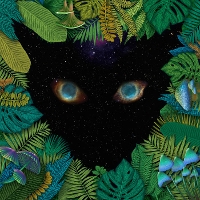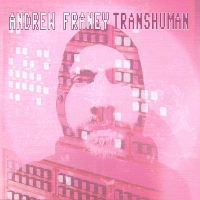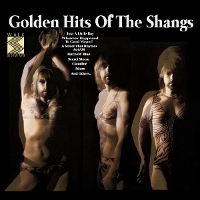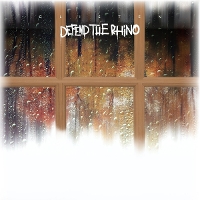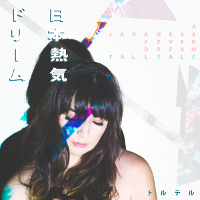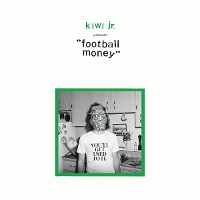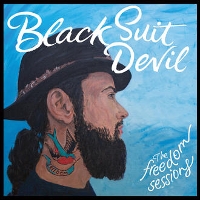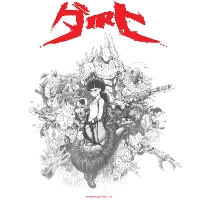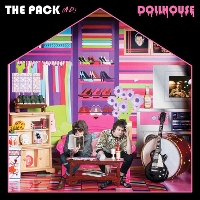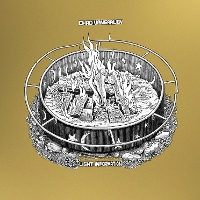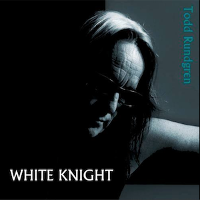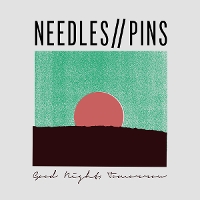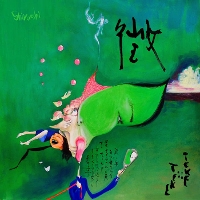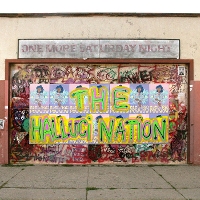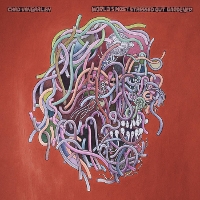Championing Women's Rights and Improvised Music: The Meredith Bates Interview
Meredith Bates has been busy trying to get more women musicians in the spotlight and working hard at combining improvised music with other art forms.
Meredith Bates is a talented violin player, who has worked in symphonies and is a fixture in the Vancouver improvised music scene. She is part of the Juno award winning group Pugs & Crows, Wooden Eye, Gentle Party and has worked with Tony Wilson, Peggy Lee and many more. She is a champion for women's rights and recognition. To say that she has been busy is an understatement. She has formed a new society, travelled to Banff, Alberta and Stockholm, Sweden in the last few months.
Immediately following the closing of most music venues, due to the ongoing pandemic Bates and her partner Chris Gestrin, live-streamed a performance as part of her Vancouver Improvised Arts Society. They called their collaboration, Crowman. Here, they experimented with synthesizers and violins. VIAS will present a livestream set every Sunday at 3pm PST, until further notice. While this interview took place before the global coronavirus pandemic, I am including mention of upcoming shows, which probably won't occur, to illustrate the sort of performances that Vancouver Improvised Arts Society has plans for in the future. We had the following conversation in February of 2020.
JD: What I wanted to talk to you about are the conditions that women artists are going through in the music world. Over the years I have asked a number of women, who are in the jazz and the improvised music genres, what it is like being a women in the music business. Not surprisingly the answers are all over the place. Some point out some problems. So, how are things going with you in the music world.
We have so many amazing female identifying musicians creating really, really strong music and providing inspiration for younger generations. But, there is still a real disparity between the number of men and the number of women on stage at any given show.MB: I mean good, in general [laughs], in terms of general parity or creating a balance, what I see, specifically in my scene in Vancouver, in the creative music scene and the improv scene, we are pretty lucky, I think. We have so many amazing female identifying musicians creating really, really strong music and providing inspiration for younger generations. But, there is still a real disparity between the number of men and the number of women on stage at any given show. To me, because we have such a rich scene in Vancouver, with so many talented women and non-binary people, we have such a wonderful pool to choose from, it surprises me that there aren't more balanced programs happening. Ya, that's sort of where I am coming from.
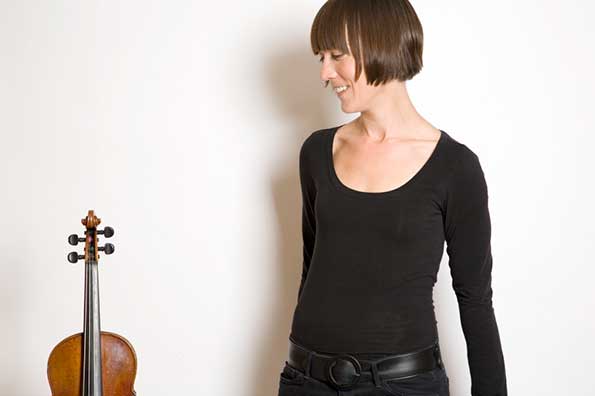
JD: Why do you think this is? Is it the promoters? Is it who's available? Is ti gender discrimination? Why? Do you have any idea?
MB: It's so hard to say. I think a lot of it comes down to, there being just more men performing, so there are less women to choose from when promoters are booking shows. I think it comes down to how people want to book events. Do they want to put emphasis on filling a quota, if you will, or do they want to book on artistic sort of choices, like, the band is already preexisting. Do they want to choose that band that has three men and one woman over putting together an ad hoc enscemble where they really think about having gender parity. When I am booking for my own events, I have run into problems making choices, because sometimes I feel that there aren't enough women in the pool to choose from. I think it force ourselves to make a more concerted effort to put more women on stage in order to inspire younger generations of women to put themselves out there; to go the extra mile, to become performers in order to increase the amount of women coming up through the performance scene.
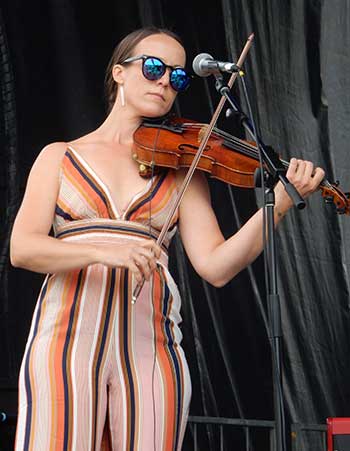
Meredith Bates
JD: At the Vancouver International Jazz Festival, there was a young man, one of the Mike Allens, who had a large band, over 20 musicians. There was a goodly number of women playing trombones, trumpets, saxes, etc. It was nice to see that there is a pool of upcoming musicians. This band was good. This band was excellent! I don't know if it had gender parity. It probably wasn't, but there was still at least one-third of the band were women. I thought that was cool. The hope is that these musicians would stay in the business. There is no guarantee that this will happen, but I thought that it was a good sign.
MB: Yes, I agree. I'm glad you noticed that. It is changing, slowly. I think it is changing because of the reasons I mentioned, because more women are making choices and sacrifices in a way, and men are, too, in order to create more balance and to just get out there and perform. That's creating inspiration and creating the optics for the younger generation. It's making the choices to have women on untraditionally female instruments and to pursue their dreams all the way to the end and to become really, really strong, talented performers. It's making male band leaders, male presenters, think twice about it. It's so subtle. I don't think it's ever malicious—these choices that sort of favour men in their bands or on their bills. It's meshed into our society. It's part of the structure that's already existing. To change that, what we need to do, is create space for female voices; to create a platform for women composers, to allow time and energy of women improvisers to create a sound for themselves. The space needs to be made first in order for a female identifying musician to come in and fill it. So, the fact that Mike Allen and his Space Elevator ensemble is featuring more and more women, is a really positive direction.
JD: I thought so, too. That was excellent. I also noticed they feature high school bands in Robson Square. The gender ratio wasn't 50/50, but it was probably quite close. It's high school and it is hard to tell if any of these people are going to take music as a profession, some might. It looked good that there were nearly an equal amount of young men and young women playing fairly well. It was kind of cool.
MB: And I think often what happens later on, because of the way we structured our society and such, some choices need to be made if people desire family or more of a higher income, stuff like that will force people into a mould in terms of the choices they are making, whether they can persue a full-time musical career or not. On the positive side there is a place being made for families to choose a different route, in terms of following more traditional roles in terms of women staying at home, looking after the kids, etc. That feels so wrong to me, these day. I'm lucky enough to have a partner who gives more than fifty percent to me, in terms of trying to balance out the amount of time to pursue our careers, perform and travel. I mean, music is not an easy choice in terms of a career path. It take so much time and energy, and, really I think a lot of what it comes down to is accessibility. Are we creating space? Are we creating possibilities for female identifying musicians to access a career in music. We can't even apply for childcare on grants, yet. It's very limited, the amount of aid we can get financially to support a family and be a touring musician. That effects fathers as well, but that is one aspect that influence how many women we see on the scent. Ya.
JD: I remember when Coco Love Alcorn had her child. You know, go on the road, don't go on the road. I remember that she was talking with other women who had done it and basically, they had a little network discussing having kids and this is what you do. I thought that was very cool. Elizabeth Shepherd, too. They all networked and figured out, what was the best way to do this. They both have very supportive husbands, as you do.
MB: My son came on tour with me for the first two years of his life and he travelled more than most people. Elizabeth Shepherd, like you said, Liala Biali. It's happening,more and more, when people can afford it or are able to tap into the funding to be able to afford it. Also, you have to be in the right ensemble that will allow you that space, and give you that freedom to be able to bring your kid on tour. I mean, it's not easy [laughs], but the norms are slowly changing slowly. I'm the type of person that wants them to change a lot faster [laughs]. It's great to see them changing. I want to see more change. I truly believe that you have to create the change you want to see. So, for my own programming for this new Vancouver Improvised Arts Society, I won't put on a program that doesn't have gender parity. It just won't happen. We are making every possible to be super inclusive, you know, to all the rainbow of people and humans that we have in our society today, celebrating that difference, creating a space and giving a platform to those voices.
JD: Well you kind of answered my next question. You have set up the Vancouver Improvised Arts Society. Could you tell us more about it. Your mandate sounds very interesting.
MB: Yes, when MERGE shut down due to the renoviction, I couldn't really help myself from wanting to present music, in some way, shape or form. I was already speaking with my friends at Studio Full Bloom on Commercial Drive about doing some small, improvised music shows. That seed was already planted and then this idea inside me grew and grew and I just had to run with it. I approached some amazing people, who then became my board members. Now we're a full-fledged society, trying to carve out a little bit of a niche in the improvised music and arts scene, incorporating dance, visual arts, digital arts, videography, puppetry, comedy, music and really forcing, for lack of a better word, equality and inter-sexuality and gender parity. Even that seems a little passe to me, like, gender is such a fluid and expansive word right now. We just really want to open up the doors to people who maybe don't have the opportunity to have a space in the music or art scene as it is right now.
Elisa Thorne
JD: Sounds like you are doing that. Do you have any upcoming shows?
MB: Our next salon is on March 21st and it's going to feature Elisa Thorn on harp and effects and Alvaro Rojas on electric guitar. I am going to invite a dancer, but I haven't quite figured that one out yet. Another idea that we have been floating around for that is improvised flower arranging, inspired by the music. So we are getting kind of kookie and kind of creative, but it's a big thing [laughs] but it could be really cool. We're very inspired by Yoko Ono and the performance art book she wrote in the sixties called “Grapefruit,” giving instructions for people to kind of expand their ideas to what they are doing in daily life. I mean to incorporate performance art and improv into daily living.
JD: That sounds very interesting. I noticed that you recently spent some time at the Banff Centre for the Arts and Creativity. What were you doing there.
MB: I went to Banff Centre for two weeks. I was focusing on my solo work for processed violin and octophonic speaker systems. I had a few different projects I was working on, without any specific goal in mind. Trying to improve my technique and sound and get a little deeper into the processing and effects on the violin. I'm really getting deep into granular synthesis and total dissection of the sound and creating texture and immersive experience. So that's where the surround sound comes in. I'll be doing a performance at the Western Front in Vancouver on May 9th. They have an octophonic sound system there. I've been the Artist in Residence at the Western Front since November of 2019 and going in every Monday for many hours and working within that beautiful space. I thought that I would take advantage of this amazing system and create a surround sound experience for the audience. It's going to be interesting, because we are going to break all the norms and change how the audience is seated. I'm also going to be working with a super inspiring visual artist whose photographs kind of embody improvisation to me. There's movement within the photographs. The way he has to move his camera to capture the movement is sort of an improv dance in itself. Our experiences and ideas about art really coincide with one another. His name is Josema Zamorano. You should check out his art work and alongside Josema and myself I will be doing a duet with Wayne Horvitz, the piano player, who is also going to be a solo set of processed piano.
JD: Oh, wow! That is going to be wonderful
MB: Ya, I'm very excited. So, that's what I was working on. I was learning the software to be able to do the surround sound and I was also getting deep into my pedals and theory-ing out all the different array of sounds that they are capable of with the acoustic violin going through them. I was also working on my first composition commission, which is to write a duet for Wayne (Horvitz) and myself.
JD: It sounds like you got a lot done. I'm not sure what I got done [laughs]. You know what I was most thrilled about, being up there? I have a four year old and I haven't been able to go super deep into my practice. It was really great to be able to have a thought, getting up in the morning, “I'd love to do ... this today,” and to keep that thought in mind, all the way through breakfast, without getting interrupted, get to my studio and apply that thought to actually doing it, practising it, working on it, until it reached—finish. You know, I was able to see a thought from conception through to completion. I know it sounds really mundane, but it was an amazing thing for me because my brain is often compartmentalized into a million different places, being a mom and a musician and working a million different jobs. It was so nice to have that space where you just create and focus and get deep into my practice.
JD: That's really what that place is for and it is so cool that Canada has it.
MB: It really is pretty special.
JD: If that is not enough, next you are going to Stockholm, Sweden. What's happening there?
MB: On top of the Vancouver Improvised Arts Society I created a band. [Like the Mind] This is the year of me just taking the bull by the horns and sort of [laughs] manifesting my own destiny. I decided to become a band leader, so I created an all female powerhouse ensemble of improvisers and composers, that includes three women from Vancouver: Peggy Lee on cello, Elisa Thorn on harp and myself on violin. Also, three women from Stockholm: Lisa Ullén, who's a fabulous piano player, Emma Augustsson, who plays cello and Lisen Rylander Löve, who's a saxophone player and vocalist. All of these women have reached super high levels, won awards, toured the world, you know, collectively collaborated with so many amazing people and are also soloists in their own careers. I'm so excited to see what we come up with together. So, I created a residency at a spot called Fylkingen. We are going to spend four days creating and collaborating together and we will see what we come up with. Beyond that, we will see if we can get some funding to travel, bring the music back to Vancouver and perform at the jazz festival. We have our sights set on the Umea Jazz Festival, just north of Stockholm for the next year. We would love to do a recording—all sorts of great things. I sort of see this ensemble as a training ensemble. I don't see mentorship as a top down thing. I see it as a circular thing. As an experienced musician I am constantly learning from the new people on the scene; being inspired by their ideas, being inspired by their risk-taking and the breaking down of the structures and the systems we have in place. And, just taking their sounds and allowing that evolution to also inform what I'm doing, obviously in the more traditional way of what I am doing. The younger generation are learning from the teachers and older musicians, who have, you know, been around the block a few times, and have a lot of wisdom and experience to teach. So, it's kind of circular, and it's kind of the way the six-piece, Like the Mind, will work, is that we will start including other mediums, like dance and visual art. We will expand to include other musicians, as people move on, in their careers. Perhaps spots will open and we will bring in new members. We will see how the band develops, as sort of an amoeba, that is always changing, and dividing and expanding.
JD: Well you are making me feel guilty [laughs].
MB: Why?
JD: For the amount of projects you are involved in and the energy you exude.
MB: For now I just want to use the energy I feel, to really push and break down some of the structures and systems we have in place, because I don't believe in them right now. I don't think they are serving us. I don't think they are letting us evolve. I see what's going on down in the States, I see what is going on in our own country and I don't think that we are doing that great now and I want to impose change and I'm going to force it. I'm not just going to let it happen naturally, It's not the way I work [laughs].
JD: Good for you. You do have spunk. I like spunk.
MB: I know. Sometimes to a fault [laughs]. But, it is what it is and sometimes you just have to embrace who you are. That's what I'm realizing with the Improvised Arts Society, with my own projects, right now. I can't change who I am. I can try to make myself different in certain ways [laughs], I think sometimes the best thing is to take the good qualities and run with them, and not try to fight it, all the time. As I enter my forties, I'm trying to be a little more comfortable in my own skin, and take the energy and all that, and the spunk and use it for the power of good.
JD: Thanks for speaking with me today. The Vancouver music scene is lucky to have you and I wish you nothing but success with the Vancouver Improvised Art Society.
MB. Thank you, Jim.
Meredith Bates https://www.meredithbates.com/
Vancouver Improvised Arts Society https://www.improvisedarts.ca/
Pugs & Crows & Tony Wilson https://www.youtube.com/watch?v=mUuxTgcoyuc
comments powered by Disqus
